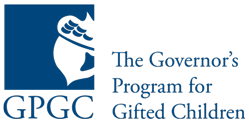Throughout the summer we will be posting weekly reports from the classes. Please let us know if there’s anything else you’d like to see or if you have any questions for specific instructors. We will be posting the first issue of The Thinker (the student newspaper) as soon as the online version is ready.
We are also posting regularly on Facebook. You don’t have to join Facebook to see our posts. The link is: https://www.facebook.com/gpgcla/
Freshmen (First Year) Classes:
Freshmen Science (Calvin Runnels, Instructor)
We had an excellent first week in science. The students were each assigned a plant for the summer, and they were asked to choose any ONE aspect of its care to change — we’ll compare each plant’s growth to a control plant over the course of the summer. The kids got pretty creative, from watering their plants with Gatorade instead of water to depriving their plant of light. In class this week, we carried out experiments to explore important topics in chemistry such as density, precision versus accuracy, and acid-base reactions. We are emphasizing laboratory safety, scientific note taking, and above all, excitement and curiosity about the world around us!
Freshman Composition (Reese Menefee, Instructor)
During the first week of class, students were exposed to major literary genres. They discussed and analyzed works of short fiction and wrote stories of their own. Students are becoming more comfortable with their own writing and the class atmosphere is encouraging and community-focused. Students have been excited to share their work aloud with the class and their feedback has been constructive and thoughtful. Overall, this was a wonderful first week of class! I am impressed by the students’ creative ideas, writing capabilities, and critical thinking skills!
Freshmen Humanities (Christine Bertrand, Instructor)
We all differ in our beliefs and values, holding a wide diversity of opinions on everything from politics to popsicles. While these differences could and should present opportunities for fascinating, engaging civil discourse, a quick peek at Facebook proves that instead of celebrating and embracing others’ views and taking the time to find commonalities, many of us instead attack and disparage one another. It should be clear to anyone living in our society today that humanity as a whole needs better communication skills.
Considering the need for better communication skills overall and as a foundation for continued discussion, this week the Humanities I class has focused on the art of discussion and persuasion, identifying various means of conveying one’s message. We’ve considered various categories of thought and evidence, including illogical, emotional reasoning, scientific reasoning based on empirical proof, and philosophical reasoning based on subjective but logical assumptions. We then explored the three primary categories of rhetorical appeals used in persuasion (logos, pathos, ethos) to equip students to recognize them in texts or media and to use them for developing their own arguments.
Graduate Classes:
Grad Psychology (Dr. Linda Brannon, Instructor)
Psychology includes a wide range of topic, which even a full college semester cannot cover adequately. No chance to do so during the 6-week GPGC session. Therefore, I chose to ask students what they were most interested in so that we could cover information about their interests.
I began by showing them a 40-item True/False quiz that includes some of the “myths” of psychology—things that are “common knowledge” yet incorrect. As expected, the students did poorly (but I did not score the activity or count it for a grade). The activity worked to prompt a discussion that covered many topics in psychology.
I asked students to write down topics that were covered in the quiz or that they had heard about and wanted to know more. This list forms the basis for the class this summer.
Conflict and Diplomacy (Jessica Markstrom, Instructor)
Students watched the movie Dr. Strangelove. It provides an understanding of the Cold War international system and brinksmanship. The class engaged in a discussion regarding the Russian invasion of South Ossetia and Abkhazian regions of Georgia in 2008, the Russian invasion of Crimea in 2014, and the ongoing Russian-Ukrainian conflict. The students started the state development project on Friday. Each student will run their own country and engage in international relations with the other countries in the fictitious international system.
Graduate Creative Writing (Reese Menefee, Instructor)
During the first week of class, students were introduced to creative writing! We discussed genre, craft, and literary elements of fiction. Students were introduced to flash fiction this week. They read, analyzed, and discussed three pieces of flash fiction in class, as well as an article relating to craft. In addition to literary analysis, students participated in daily writing activities. Overall, this was a great first week of class! Due to the small size of the class, every student was able to share their work aloud and receive constructive feedback from each other! The work each student produced this week was creative and included strong sensory details and imagery. Each student has their own style of writing rooted in tone and interest! I am proud of their participation this week and very excited to read more of their work as their writing progresses in my class!

